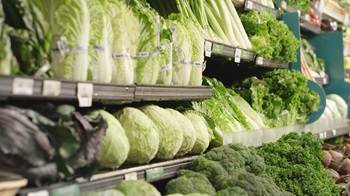By Rick Stein, Vice President of Fresh, FMI

The COVID-19 pandemic has been a giant learning experience about many things — and one of these is how consumer perspectives are shifting.
FMI has been tracking this topic closely, and my role is to examine this on the fresh foods side. Back in August, at our FreshForward conference, speakers identified how quickly consumers have evolved this year. Since that time, however, the puck keeps moving.
That’s why we are spotlighting new consumer perspectives in our kickoff installment of a new FMI monthly webinar series called FreshForward Conversations. We brought back one of the key speakers from the August conference — Ujwal Arkalgud, CEO of MotivBase — to provide an update on how consumers have advanced in their perceptions of fresh. He points to topics including prepared foods, local products, sustainability and health.
“The pandemic has advanced the fresh foods topic,” he said in the webinar. “There’s more energy and excitement around fresh. There’s a growth in the culture of fresh foods — and how fresh can be utilized in our daily lives.”
Food Waste Gains Bigger Profile
Ujwal is an award-winning cultural anthropologist who specializes in identifying insights from big data ethnographic research. He’s an out-of-the-box thinker with a lot to say about fresh foods. As one example, he has identified a growing consumer interest in the food waste topic.
“Food waste has come more into focus because of the pandemic,” he said in the webinar. “People are starting to believe that if you are a retailer that offers fresh foods, you should have a unique system to manage and minimize waste. If you have this in place, customers will assume you offer fresher foods. That’s new and super interesting.”
He said retailers making responsible decisions will gain consumer trust going forward.
“We’ll see this play out on the other end of this pandemic once the shackles are gone.”
Local Foods Take on New Meaning
Ujwal made an important connection between consumer interest in local foods and their perceptions about nutrition. He said the connection can be explained by a growing consumer focus on food miles — or how far food travels from origin to plate.
“People are trying to make sense of this,” he said. “They perceive that if a food has traveled less distance, it must have better nutrition. This concept existed before, but it has accelerated.”
Prepared Foods Viewed Differently
Consumers are also thinking differently about prepared foods — focusing more on health and perceived levels of freshness, according to Ujwal.
“They are wondering if the food was frozen before. Is there use of preservatives? How long was it sitting in a hot bar? These are simple but important questions that haven’t been front and center in the past.”
The industry has an opportunity to accelerate transparency on this subject through improved communications, he added.
Next Steps for the Industry
I really like Ujwal’s points and his approach to examining perceptions and meanings. He’s right in saying that consumer insights need to be based on more than just behaviors — and that perceptions can be important predictors of long-term consumer trends.
In the coming months FMI will be covering many other relevant fresh topics as part of this webinar series. Meanwhile, FMI’s 2021 FreshForward conference is scheduled for August 17 to 19 in Minneapolis.
The new year will likely be a transformative one for consumers, business and society overall. I believe this industry will need to keep examining our customers through many lenses to make sure we are doing the best job of serving their needs.
Webinar Recording

 Industry Topics address your specific area of expertise with resources, reports, events and more.
Industry Topics address your specific area of expertise with resources, reports, events and more.
 Our Research covers consumer behavior and retail operation benchmarks so you can make informed business decisions.
Our Research covers consumer behavior and retail operation benchmarks so you can make informed business decisions.
 Events and Education including online and in-person help you advance your food retail career.
Events and Education including online and in-person help you advance your food retail career.
 Food Safety training, resources and guidance that help you create a company food safety culture.
Food Safety training, resources and guidance that help you create a company food safety culture.
 Government Affairs work — federal and state — on the latest food industry policy, regulatory and legislative issues.
Government Affairs work — federal and state — on the latest food industry policy, regulatory and legislative issues.
 Get Involved. From industry awards to newsletters and committees, these resources help you take advantage of your membership.
Get Involved. From industry awards to newsletters and committees, these resources help you take advantage of your membership.
 Best practices, guidance documents, infographics, signage and more for the food industry on the COVID-19 pandemic.
Best practices, guidance documents, infographics, signage and more for the food industry on the COVID-19 pandemic.
